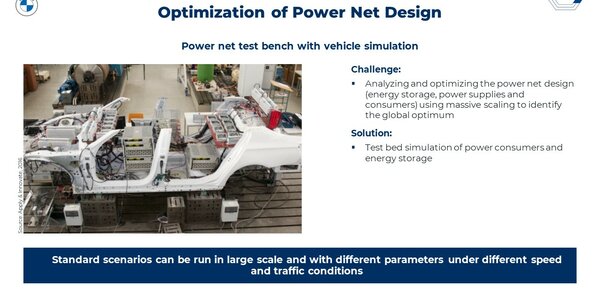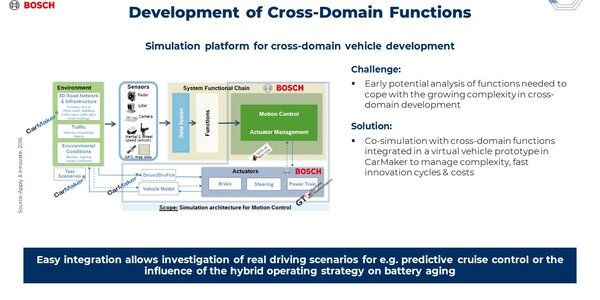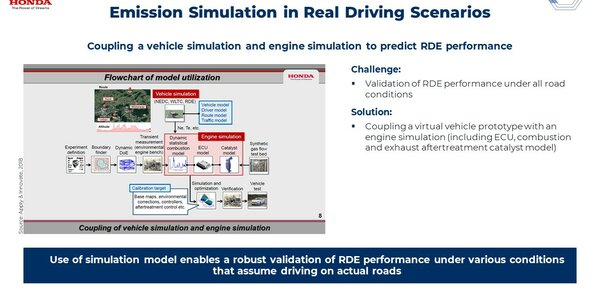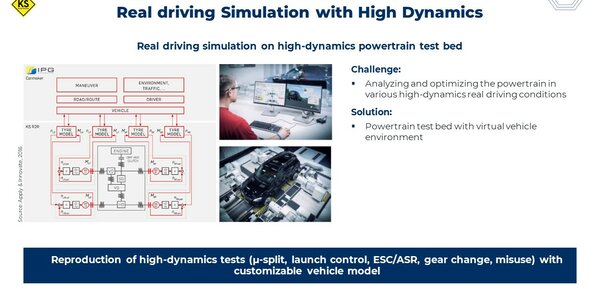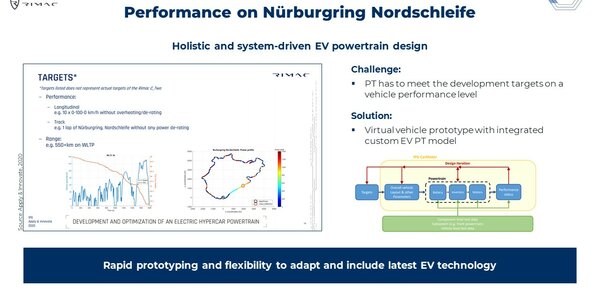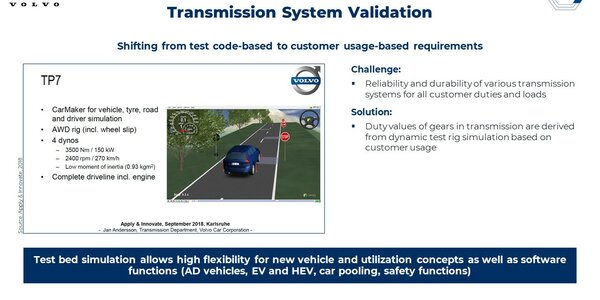The key to an efficient test strategy is to combine the advantages of real-world test drives and virtual methods. The main goal is to provide an agile test environment that allows for complex decision-making with the right tests at the right time. The seamless use of simulation (vertical integration) enables to perform development, test and optimization not only on the test track but also on the test bed.
Current chassis dynamometers and powertrain test beds can be extended with the virtual test driving environment CarMaker TestBed. The environment simulations that can hence be performed also include the different levels of sensor simulation for camera, radar, lidar and ultrasonic technologies. With these extensions, ADAS and AV algorithms can be tested in the full system using realistic scenarios along the entire value chain. To perform for example system integration tests that determine the impact of ADAS and autonomous driving functions on the powertrain (e.g. with regard to energy efficiency or vehicle handling), these tests are incredibly relevant. The technology can be used to validate adaptive cruise control (ACC), lane keeping assist (LKA) and other ADAS or autonomous driving functions as well as to perform EURO NCAP test scenarios in a cost-efficient way.
System test beds extended by this extensive simulation solution for virtual tests represent a tool that meets the development requirements of a “system under test”.
Your benefits at a glance
Test and validation of ADAS and AD functions
Easy reproduction of everyday scenarios such as uphill drives
Engineering of full vehicle attributes
Tuning for example vehicle handling, drivability and the specific brand DNA
Reduced costs
Avoid high costs due to wrong decisions
Increase efficiency through system integration
Test on system level and not on component level
